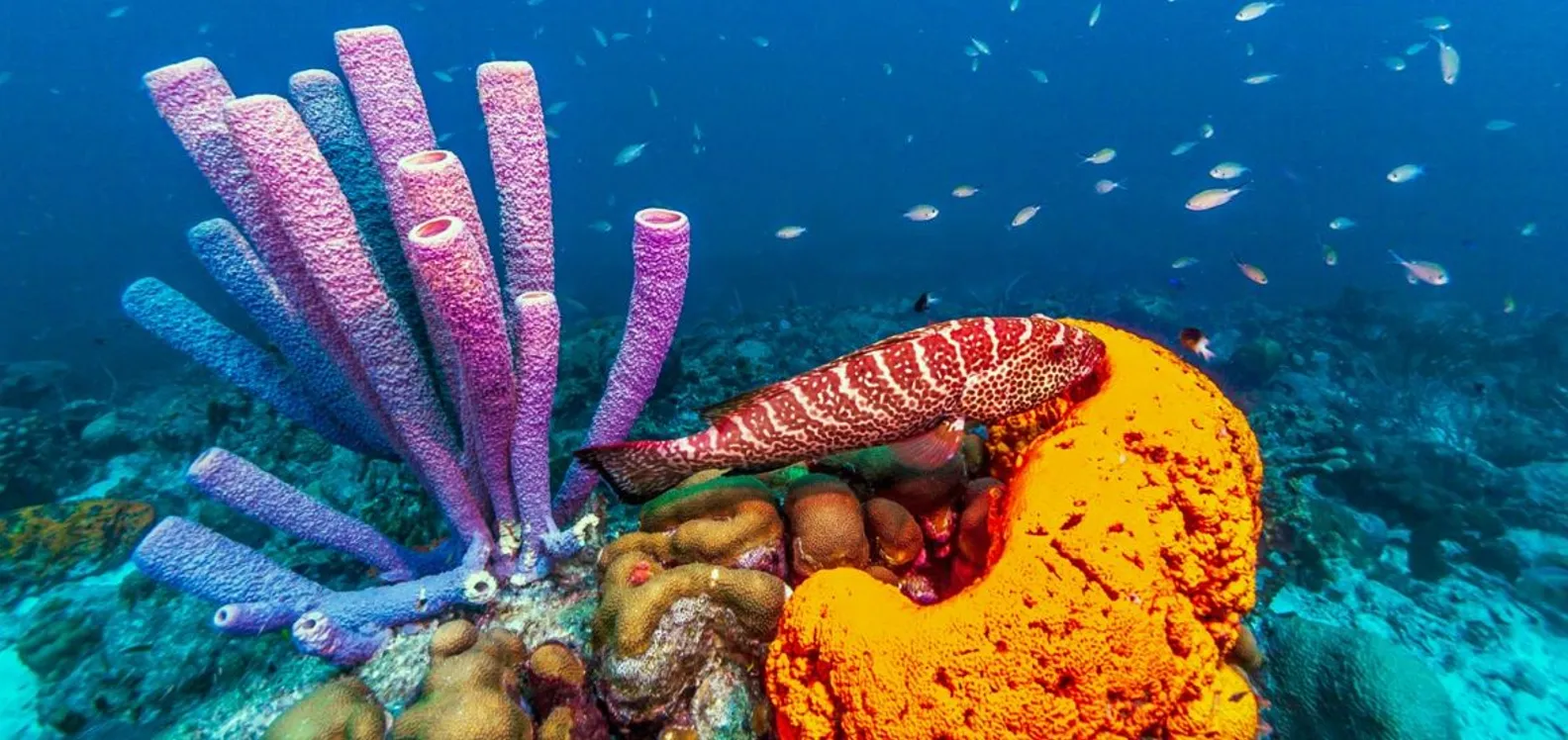Almost all multicellular creatures on Earth form symbiotic relationships with extremely extensive and complex microbial communities known as microbiomes.
 Fish swimming past coral and marine sponge. The researchers are currently using the proposed framework to investigate microbes inside marine sponges. Image Credit: Swansea University
Fish swimming past coral and marine sponge. The researchers are currently using the proposed framework to investigate microbes inside marine sponges. Image Credit: Swansea University
A new study has now been released that aims to provide a thorough understanding of how these associations emerge.
Dr. Miguel Lurgi, a computational ecologist, investigates how relationships between complex bacterial communities and multicellular hosts evolve naturally by integrating theory and actual research.
Dr. Lurgi and his colleague Dr. Gui Araujo from the Biosciences Department of the Faculty of Science and Engineering collaborated on their latest research with collaborators from the French Scientific Research Council, the University of New South Wales in Australia, and the Institute for Marine and Antarctic Studies in Australia.
They went about developing a theoretical framework to obtain further insight into the formation of host-associated complex microbiomes. Their findings have now been published in the prominent journal Trends in Microbiology.
We argue that microbiome assembly is a product of ecology and evolution acting together. Our research aims at bringing together ecological and evolutionary theory on one hand, and microbial and symbiont ecology and evolution on the other, to create a holistic picture of the assembly of complex symbioses. These symbiotic relationships constitute one of the most ancient associations between multicellular organisms and groups of microbes, and, in many cases, they are fundamental to the persistence of both the host and the microbiome.”
Dr. Miguel Lurgi, Computational Ecologist, Swansea University
The researchers are currently utilizing the suggested framework to explore bacteria within marine sponges. They are also considering expanding these findings to other microbiomes, allowing for a more comprehensive knowledge of the complex nature of symbiotic connections between various organisms within different groups of hosts and across taxa.
Dr. Lurgi is the head of Swansea's Computational Ecology Lab and has received a Leverhulme Trust grant for his study on the origins of complex symbioses.
Dr Lurgi added, “My main research focus is on the mechanisms behind the emergence of complexity in ecological networks. I develop theoretical models of ecological communities and network dynamics to better understand these mechanisms and the biodiversity patterns they give rise to.”
Dr. Lurgi and Dr. Araujo are now expanding the mathematical underpinnings of the ideas provided in this study, and they recently presented their findings at the 19th International Symposium of Microbial Ecology in South Africa.
Source:
Journal reference:
Araujo, G., et al. (2024) A mechanistic framework for complex microbe-host symbioses. Trends in Microbiology. doi.org/10.1016/j.tim.2024.08.002.